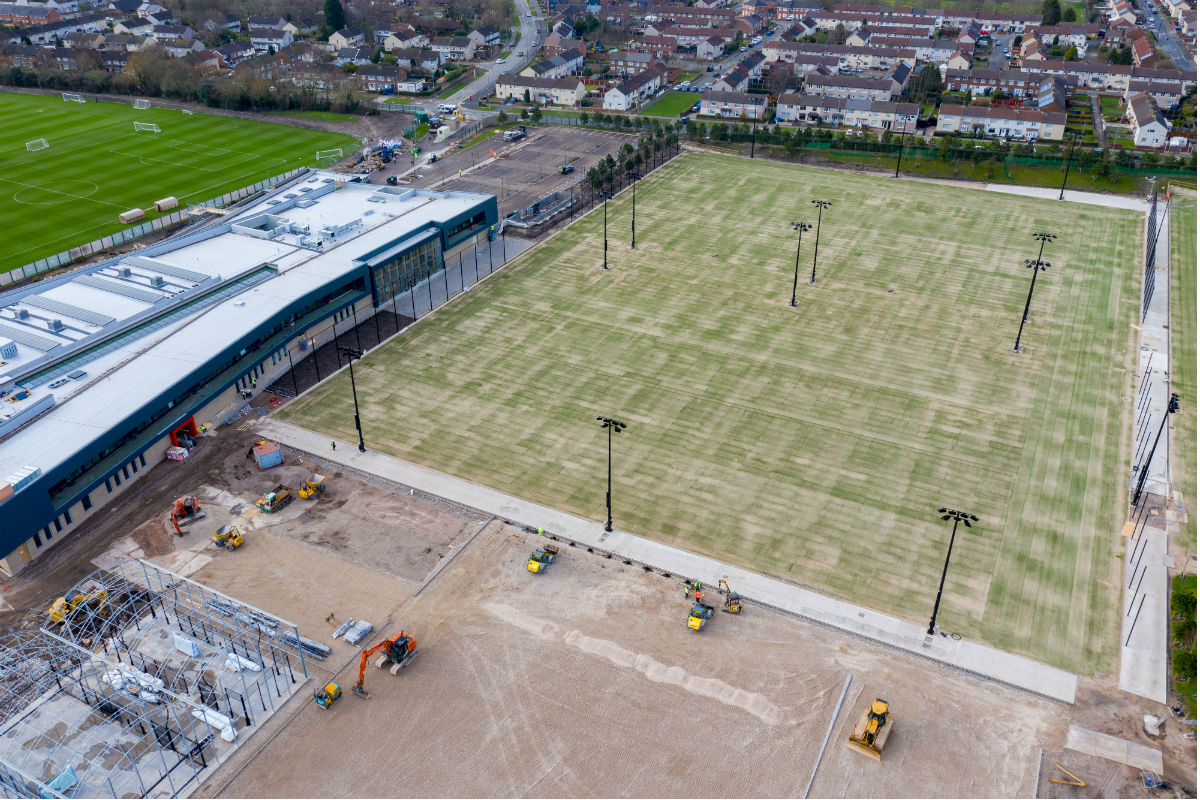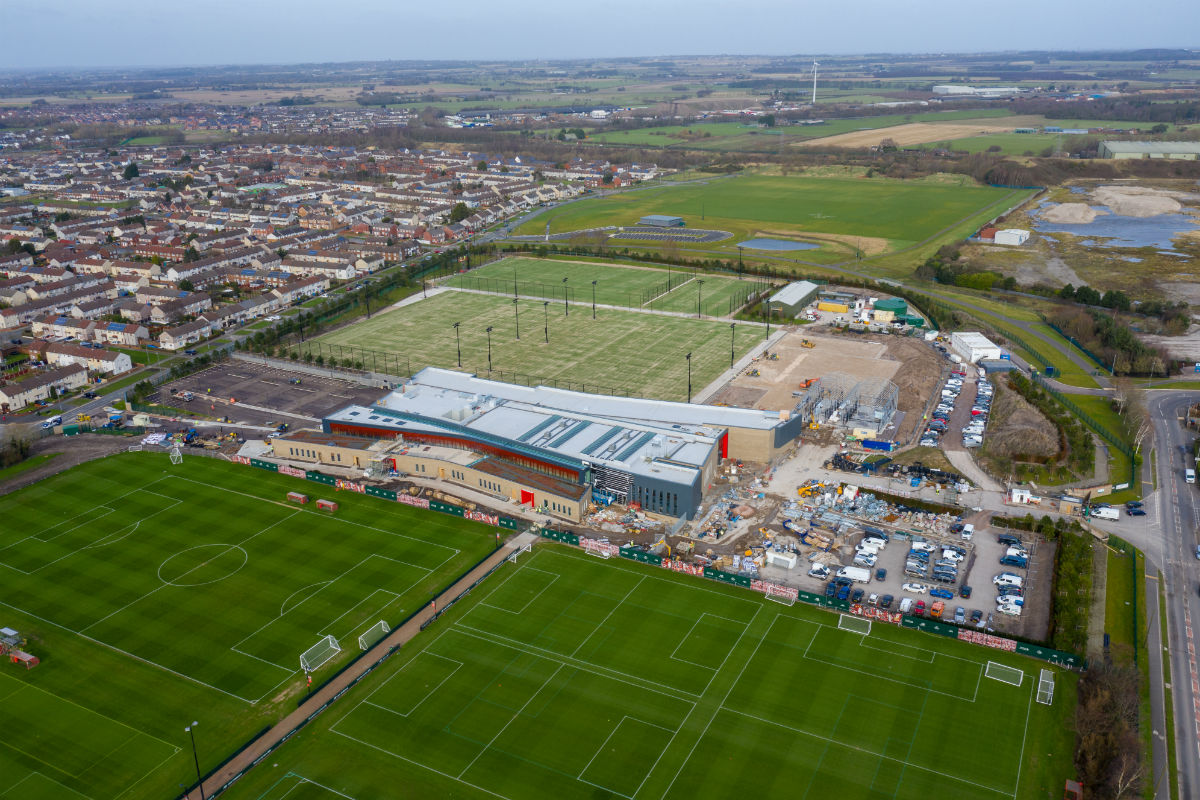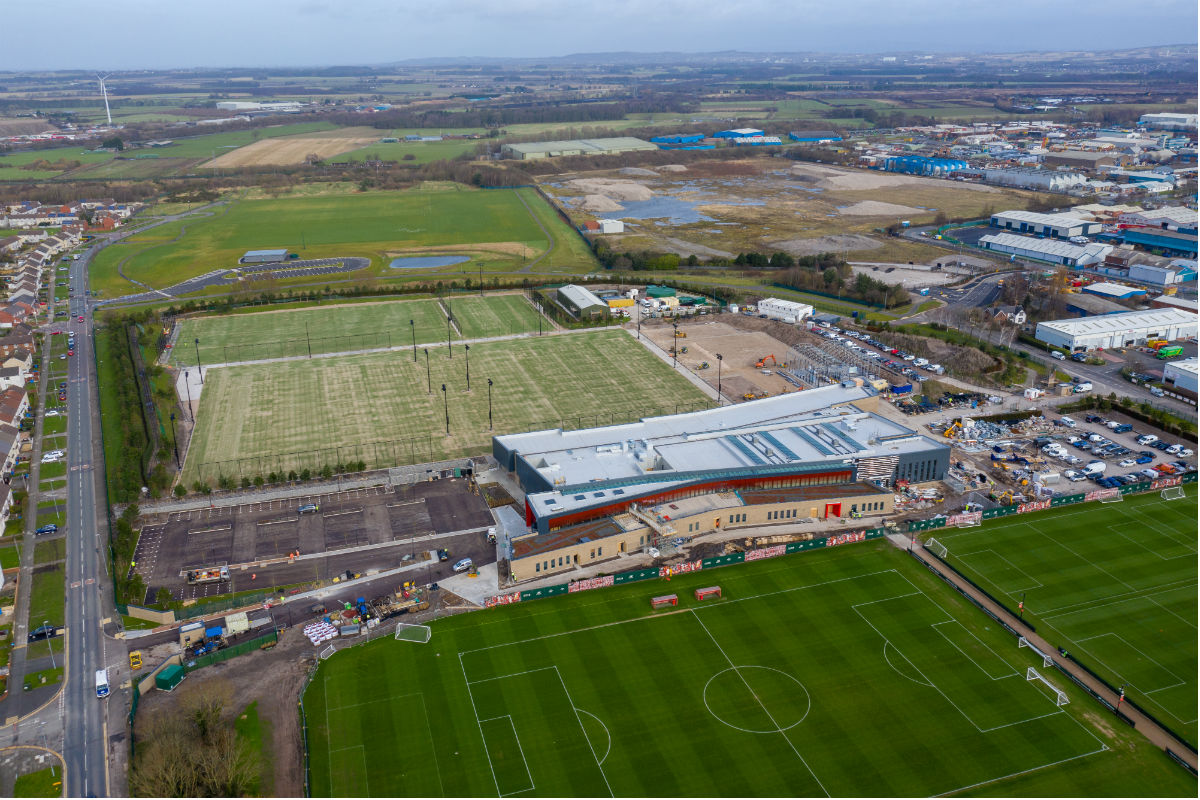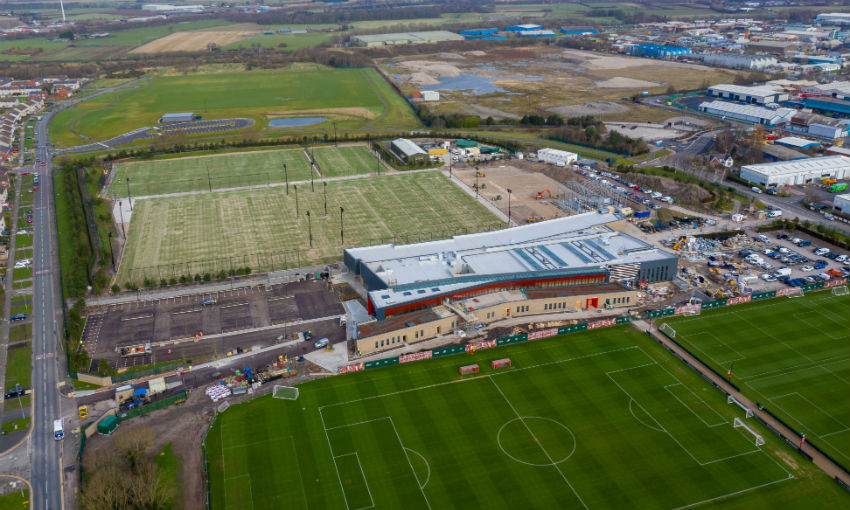Video and photos: Pitches at Liverpool's new training ground take shape
The pitches at Liverpool's new world-class training facilities are taking shape.
The new 9,200m² building in Kirkby will boast three pitches measuring approximately 32,000m², with dedicated goalkeeping and warm-up areas separating two of the pitches and an outdoor sports area with a full-size tennis court, artificial grass head tennis court, a large artificial grass training area, two padel tennis courts and a beach volleyball court.
The playing surfaces have been made to mirror Anfield’s turf as closely as possible, complete with under-soil heating and floodlighting.
Each pitch is reinforced using Desso Grassmaster artificial fibres. The stitching process has taken 12 weeks using five machines to install more than 192,000km of fibre that has been stitched into layers of sand beneath each pitch.
Approximately 2.5 tonnes of grass seed will be sewn in spring ahead of the opening of the facility later this year. Each pitch will be composed of 97 per cent natural grass and three per cent artificial grass fibres.
To support healthy growth, the pitches contain 180 tonnes of Zeolite, a form of volcanic ash and other organic products, which reduces nutrient loss and helps keep the pitches to an exceptionally high standard. Sixty pop-up irrigation heads have been installed to provide water to all the pitches to give the slick, fast surface required for Liverpool’s style of play.
Work on the new grounds’ maintenance area is complete, including a new borehole to extract groundwater to irrigate the pitches and tend to the landscaping on site. The newly-installed borehole will ensure that the club’s irrigation strategy is self-sufficient, avoiding the use of mains-sourced water for irrigation. The club’s Academy site also uses an existing borehole to irrigate its pitches.
As part of the grounds’ maintenance building, the Reds have invested in a biological vehicle wash system, allowing its grounds team to wash equipment, vehicles or parts and reclaim the water used. The system treats and filters out grease, grime, oil and grass cuttings that can collect on vehicles and equipment and effectively recycles the dirty water to be used again.






